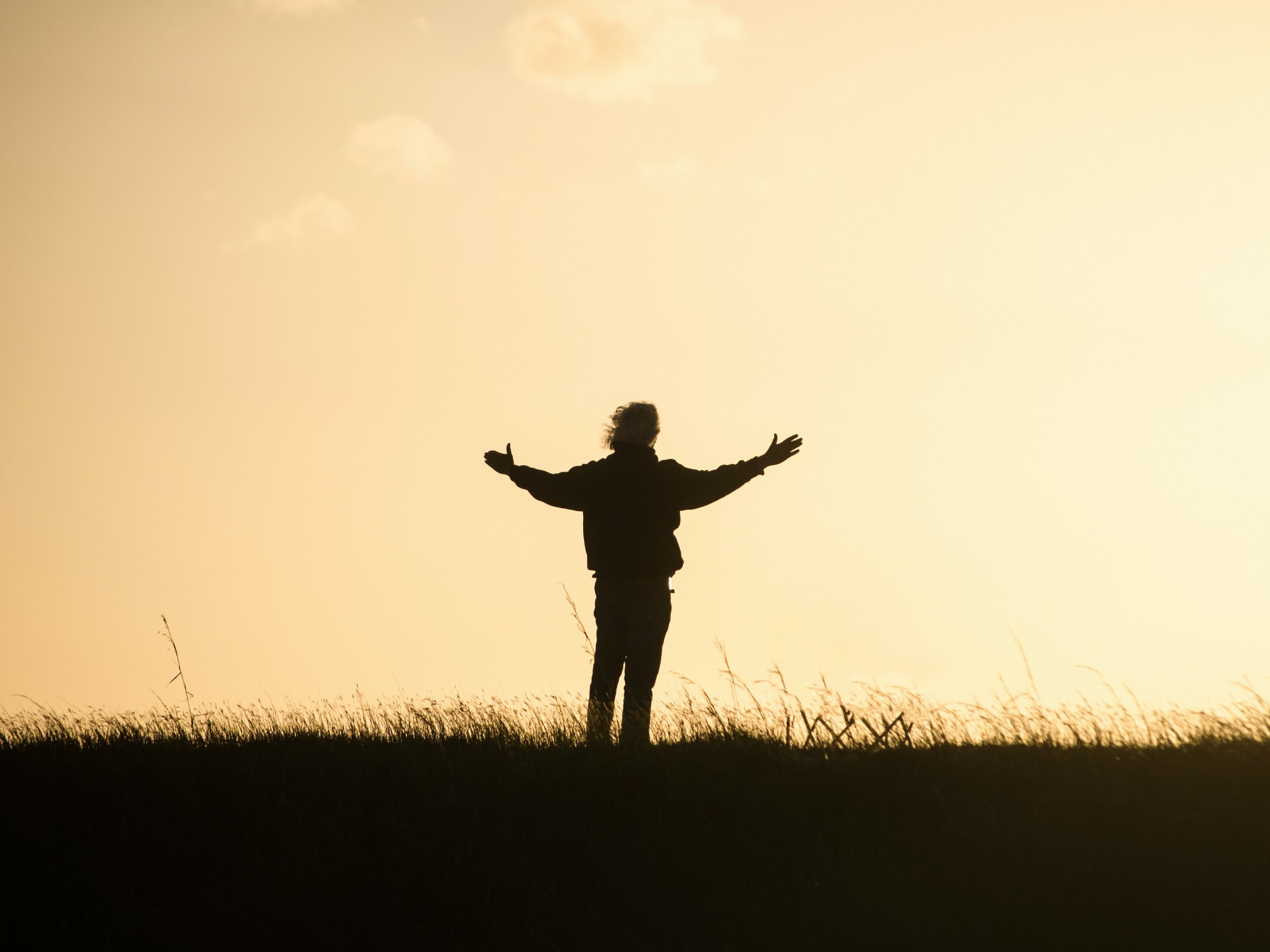Gratitude: Counting Your Blessings Is Good for Your Mind & Body
Photo by Amadeo Valar on Unsplash
“What is life but an angle of vision?”
--Ralph Waldo Emerson
Why practice gratitude? Aren’t thank yous just an everyday part of life?
We say “thank you” at the store, at family dinners, in business deals, at the end of Zoom calls, and on a host of other small and large occasions, both in real life and, increasingly, on the computer.
But gratitude is more than a simple “thank you.” It’s more than just an emotion. It’s a value, a virtue, and, for many of us, a practice we choose to cultivate.
Gratitude Improves Your Health
In fact, according to scientists, people who practice gratitude consistently report a variety of benefits, including:
Stronger immune systems and lower blood pressure
Higher levels of positive emotions
More joy, optimism, and happiness
Acting with more generosity and compassion
Feeling less lonely and isolated
Sounds good, huh?
It’s often said that even if you have no other spirituality or religion in your life, practicing gratitude will suffice.
What Gratitude Means
So, what exactly is gratitude? It is a thankful appreciation for what an individual receives, whether tangible or intangible.
With gratitude, you acknowledge and focus on the goodness in their lives. In the process, you usually recognize that the source of that goodness lies, at least partially, outside of yourself. It is a clear acknowledgment of that which has been done. But even more, gratitude is the deep knowledge of it, or better yet, the wise reflection of it.
Gratitude brings with it a sense of kindness and understanding. It also helps you connect to something larger than yourself—whether it’s to other people, nature, or a higher power.
David Steindl-Rast, in his book “Gratefulness, the Heart of Prayer”, says: “The interdependence of gratefulness is truly mutual. The receiver of the gift depends on the giver. Obviously so. But the circle of gratefulness is incomplete until the giver of the gift becomes the receiver - a receiver of thanks. When we give thanks, we give something greater than the gift we received, whatever it was. The greatest gift one can give is thanksgiving. In giving gifts, we give what we can spare, but in giving thanks, we give ourselves.”
When people do nice things for others unexpectedly, that produces gratitude and increases the likelihood that people will do something “in kind.”
In his bestselling book, “Thanks! How The New Science of Gratitude Can Make You Happier”, Robert Emmons, a University of California-Davis professor, backs up the claim made by his title with eight years of intensive research on gratitude. He states: “We all begin life dependent on others, and most of us end life dependent on others. If we are lucky, in between we have roughly 60 years or so of unacknowledged dependency. The human condition is such that throughout life, not just at the beginning and end, we are profoundly dependent on other people… Gratitude is the truest approach to life. We did not create or fashion ourselves. We did not birth ourselves. Life is about giving, receiving, and repaying. We are receptive beings, dependent on the help of others, on their gifts and their kindness.”
Humans are born, survive off the generosity of others, and then die. Thus, gratitude naturally is and should be the organizing principle of life.
Photo by Debby Hudson on Unsplash
Gratitude Changes Your Brain
Neuroscience has confirmed that meditation actually changes the brain, especially the pre-frontal cortex and areas responsible for compassion and generosity. If you bring to mind someone you know that is a “happy” person, don’t they have a natural sense of gratitude and generosity?
When we tighten up, have fear, or are stressed, the primitive part of our brain takes over, and we have this sense of “other.” We feel disconnected and alone. With gratitude practice, we train our brains just like any other mindfulness practice. We intend to notice and to take in the good. We make friends with what’s here at this moment by remembering what we love (I love my kids, chocolate, a rainy day, my cats, “Ted Lasso”…)
Paying attention to what you’re grateful for can switch the channel of negative thinking and help you appreciate what is here in your life right now. To deepen the effect, though, it’s important to let yourself fully experience gratitude when it’s here and take time to savor the moment, particularly in the body.
Six Simple Ways to Cultivate Gratitude
To help you out start practicing gratitude and cultivate your grateful side, here are some ways to bring it into your life:
Write a thank-you note - You can make yourself happier and nurture your relationship with another person by writing a thank-you note.
Thank someone face to face or even just do it mentally - No time to talk or write? It may help just to think about someone who has done something nice for you and mentally thank the individual.
Keep a gratitude journal - Write down each day the gifts you’ve received.
Recap at meals the highlights of the day.
Pray - If you regularly practice prayer, use it as a method to cultivate gratitude.
Try mindfulness meditation - This involves focusing on the present moment without judgment. In meditation, we acknowledge the good right now, even the challenges. Our happiness is then not dependent on conditions being a certain way. Instead, we cultivate a sense of gratitude in the midst of whatever is happening in life.
Albert Einstein is credited (perhaps apocryphally) as saying: “There are only two ways to live your life. One is as though nothing is a miracle. The other is as though everything is.”.
Regardless of the providence of the quote, the sentiment stands. Gratitude is a way to appreciate what you have. Instead of always reaching for something new in the hopes it will make you happier or thinking you can’t feel satisfied until every physical, material and emotional need is met, be grateful for the bounties of your life.
Gratitude helps us refocus on what we have instead of what we lack. And, although it may feel contrived at first, this mental state grows stronger with use and practice.
In the end, the author Kurt Vonnegut–who’s collected works we should all be grateful for–summed it up best: “When things are going sweetly and peacefully, please pause a moment, and then say out loud, ‘If this isn’t nice, what is?’ ”
So, look around and be thankful for what you have.
Are you counting your blessings?
Are you paying attention to the good things you have in your life?
If you want help practicing gratitude, please contact us.
Book a consultation and start working today with Wellness and Yoga Coaches.
View all our yoga classes and packages.
Become your best self.



